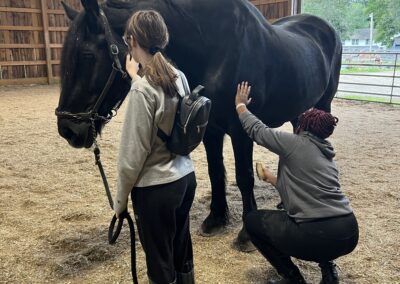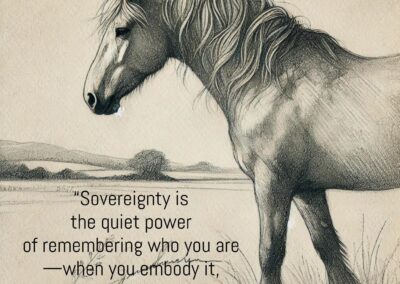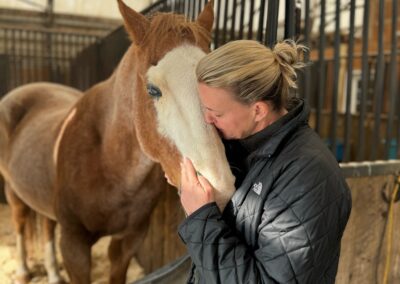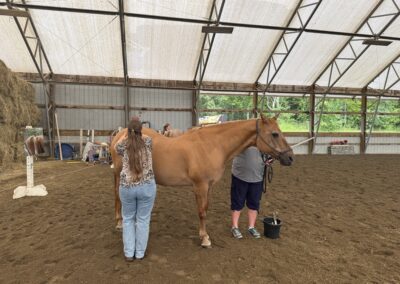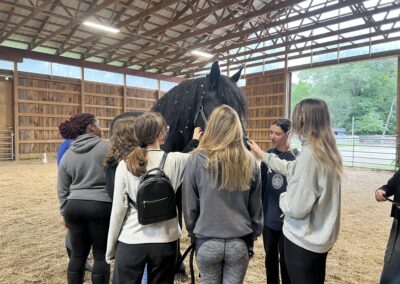Services
Equine Therapy
Equine therapy offers powerful emotional and psychological benefits by fostering self-awareness, emotional regulation, and trust through guided interaction with horses.
Equine therapy—also known as equine-assisted therapy or equine-assisted psychotherapy—is a structured therapeutic approach that involves intentional interaction between people and horses, typically under the guidance of mental health professionals and equine specialists. This unique modality is gaining traction as a complementary treatment for a range of mental health conditions, including anxiety, depression, PTSD, and behavioral disorders. I specialize in offering Equine therapy to the Veteran population as well as to women in different life phases and transitions. Examples of workshop and retreats have focused on : Addiction and the Path of Recovery, Managing Grief and Loss, Post Traumatic Growth, Resilience, Couples and Family workshops, Mindfulness and Meditation to help manage difficult emotions, Skills for Emotional Regulation and Veteran Identity and Transition Home.
Here’s how equine therapy supports mental well-being:
Emotional Regulation and Stress Reduction
- Horses are highly sensitive to human emotions and respond to nonverbal cues, helping people to become more aware of their emotional states.
- The calming presence of horses can reduce cortisol levels and promote relaxation, making it easier for individuals to process difficult emotions.
Enhanced Self-Awareness and Empathy
- Working with horses encourages reflection and mindfulness. Clients often gain insights into their behavior and emotional patterns by observing how horses react to them.
- This interaction fosters empathy, as clients learn to interpret and respond to the horse’s needs and feelings.
Building Trust and Confidence
- Horses require consistent, respectful communication and boundaries, which helps individuals to develop trust and assertiveness.
- Successfully engaging with a horse can boost self-esteem and confidence, especially for individuals who struggle with interpersonal relationships.
Experiential and Nonverbal Healing
- Unlike traditional talk therapy, equine therapy offers a hands-on, experiential
process that can be especially helpful for those who find verbal expression
challenging. - Activities such as grooming, leading, or simply being near the horse provide
therapeutic value without the pressure of conversation.
Trauma Recovery and Emotional Processing
- For trauma survivors, horses offer a safe and nonjudgmental presence. Their responsiveness helps clients feel seen and validated, which is crucial for healing.
- The structured environment allows for gradual exposure to emotional triggers in a controlled, supportive setting.
Equine therapy is about connection, presence, and healing. Whether used as a standalone treatment or alongside traditional therapy, it offers a deeply enriching path to emotional resilience and personal growth. I am certified through Partnership for Therapeutic Horsemanship (PATH) as an Equine Specialist in Mental Health and Learning provider and I integrate mindfulness, movement such as gentle yoga and Qi gong and breathing techniques into my workshops and retreats.


